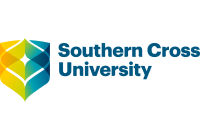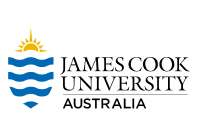Does an MBA in Australia require work experience? That's a question many students who are planning to pursue an MBA in Australia may ask. The answer may surprise you. While work experience is recommended for most MBA programs, it is sometimes a relaxed requirement for admission to an MBA program in Australia.
To clarify, many top MBA programs in Australia prefer students with some work experience. But, some MBA programs in Australia do not require any work experience. This article aims to provide a comprehensive guide on the MBA programs in Australia, their admission requirements, and the level of work experience they require.
So, if you're considering pursuing an MBA in Australia and wondering whether you need work experience, you've come to the right place. We'll provide you with all the information you need to make an informed decision. Besides, we'll also cover the benefits of having work experience while pursuing an MBA in Australia and explore some of the top MBA programs in Australia that offer work experience waivers.
But first, let's dive into the question at hand. Does an MBA in Australia require work experience? The answer is more complex than you might think, and the level of work experience required can vary depending on the program.
So, without further ado, let's jump into the realm of MBA programs in Australia and explore their work experience requirements.
Quick Links To Master Of Business Administration Online Programs
RMIT
Master of Business Administration Online
- 2.7 years part-time. Reduced duration available
- $4,560 per course, FEE-HELP available
- Jan, Mar, May, July, Aug, Oct
Southern Cross University
Master of Business Administration Online
- 2 years part-time
- Jan, Mar, May, July, Aug, Oct
- $2,990 per unit, FEE-HELP available
UTS Online
Master of Business Administration Online
- 2 years (minimum)*, Part-time
- 12 subjects | 7-week study blocks
- $4,250 per subject**, FEE-HELP available
James Cook University
Master of Business Administration Global (MBA Online)
- $3,700 per subject , FEE-HELP is available
- 24 months, Part-time
- 12 (One subject per each 7-week study period)
What Is an MBA?
An MBA is a postgraduate degree that focuses on expanding one's knowledge and abilities in the areas of business and management. The abbreviation "MBA" stands for "Master of Business Administration." The curriculum for the degree covers a wide variety of business-related areas, such as accounting, human resources, marketing, operations management, and organisational behaviour, among others.
Students in an MBA programme are intended to emerge from the programme with a comprehensive understanding of the concepts and practises of business, as well as the preparation necessary to assume leadership roles in a variety of fields. Coursework, case studies, group projects, and the opportunity to network with established experts in the field are often required components of the programme.
Several master's of business administration (MBA) programmes also offer specialised specialisations in areas such as healthcare, entrepreneurship, sustainability, and technology, to name just a few of the available options. Students are able to personalise their education to better align with their individual job objectives and interests by choosing one of these concentrations.
Employers place a high value on employees who have earned an MBA degree since it often results in professional advancement and higher earning potential. MBA graduates frequently go on to pursue careers as executives, business owners, consultants, and managers in a wide variety of fields after graduation.
In general, a Master of Business Administration degree is a versatile certificate that is widely valued, and it offers students a solid foundation in both the theory and practice of business.
Importance of Work Experience for MBA
Work experience is a crucial component of a Master of Business Administration (MBA) programme since it offers students hands-on exposure to corporate operations, the development of skills, insights into the industry, and the establishment of professional networks. The following are some of the most fundamental reasons why MBA candidates should have prior work experience:
- Students are able to adapt the theoretical frameworks they study in the classroom to real-world scenarios when they gain practical exposure through work experience. Students benefit from this hands-on experience by developing the knowledge and practical skills necessary to succeed in their future employment.
- Students have the opportunity to develop a variety of talents through job experience. These skills include leadership, communication, the ability to solve problems, and working well with others. Employers place a great value on the abilities mentioned above, as they are fundamental to success in the business world.
- Work experience gives students a comprehensive grasp of the field in which they are interested in pursuing a career, including a familiarity with the most recent developments in the field and its inherent potential and difficulties. Having this knowledge is helpful when looking for a job and making a plan for one's career.
- Building a Professional Network: Students with previous work experience have the opportunity to develop their professional networks, which can be advantageous for future job prospects and career growth. Students who gain job experience have the opportunity to meet industry professionals and begin developing relationships, which is an essential part of the business world.
Work experience is one of the requirements for admission to a Master of Business Administration (MBA) programme in Australia. This is due to the fact that work experience enables students to gain hands-on experience, further, their skill development, gain valuable industry insights and expand their professional networks.
Students should prioritise obtaining relevant work experience before enrolling in a master's degree in business administration (MBA) programme. This will enable them to graduate with the knowledge and abilities necessary to be successful in their chosen fields.
MBA Programs in Australia
There are a variety of Master of Business Administration (MBA) programmes available in Australia's leading universities, and these programmes are designed to cater to the specific requirements of each individual student. The following is a list of some of the most important aspects of MBA programmes in Australia:
- Structure of the Program: The duration of a Master of Business Administration (MBA) programme in Australia can span anywhere from one to two years, depending on the university and the program's format. In order to meet the requirements of working professionals, several programmes may also provide adaptable educational opportunities, such as studying part-time or entirely online.
- The coursework for Master of Business Administration (MBA) programmes in Australia often covers a wide variety of business areas, including accounting, finance, marketing, operations management, and organisational behaviour. Moreover, several programmes may provide specialised focuses in subfields like entrepreneurship, environmental responsibility, and technological innovation.
- Prerequisites for Entrance: The requirements for admission to MBA programmes in Australia vary from university to university, but in general, applicants need a bachelor's degree from a reputable institution, relevant job experience, and a competitive score on either the GMAT or the GRE. In addition, the application procedure for some colleges may involve the submission of a personal statement as well as references.
- Accreditation: The Association to Advance Collegiate Schools of Business (AACSB) and the European Foundation for Management Development (EFMD) are two of the organisations that accredit MBA programmes in Australia. The programme must demonstrate that it can consistently achieve rigorous academic criteria to earn accreditation.
- Opportunities for a Career: Graduates of Master of Business Administration (MBA) programmes in Australia are highly sought after by employers, and there are opportunities for them to pursue careers in various fields, including the financial sector, consulting, the marketing industry, and technology. MBA graduates have other options, like venturing into business ownership and starting their own companies.
Students who enrol in MBA programmes in Australia have access to a high-quality education that includes the chance to specialise in their studies, a variety of flexible study alternatives, and promising future prospects.
Suppose you are considering enrolling in a Master of Business Administration (MBA) programme in Australia. In that case, it is critical that you investigate the exact programme criteria and accreditation in order to verify that the programme will fulfil both your current and future professional demands.
Work Experience Requirements for MBA Programs in Australia
Work experience is a fundamental prerequisite for admission to MBA programmes in Australia. This is due to the widespread belief that having relevant work history is a significant indicator of a student's capacity to do well in both the MBA programme itself and in their future professions. The following is a list of some of the most important aspects of the requirements for work experience for MBA programmes in Australia:
- Work Experience Length: Applicants to MBA programmes in Australia are normally required to have at least two to three years of full-time job experience. However, some programmes may demand more or less time in the workforce, depending on the university and the structure of the programme.
- Experience in a Business-Related Field: While the specific type of work experience needed to enrol in an MBA programme in Australia can vary, it is almost always a requirement that the work be done in some capacity connected to a business. This may involve previous experience in areas such as finance, marketing, operations management, or any number of other company tasks. Certain programmes may also accept experience in sectors other than business, provided that the experience is pertinent to the programme's primary focus.
- Experience in a Leadership or Management Role: MBA schools in Australia prioritise having quality work experience, which is often described as having previous experience working in a managerial or leadership capacity. This can include experience in leading a team, managing a project, or managing a department. MBA programmes place a high premium on applicants who have previous work experience that indicates good communication, problem-solving, and teamwork skills.
- Experience Working Abroad: Many MBA schools in Australia place high importance on international work experience because it displays a candidate's capacity to function effectively in a global business setting. Experience on a global scale can come from various sources, such as working for a multinational corporation, working in another country, or managing projects on a global scale.
The importance of practical experience and leadership qualities in the corporate world is reflected in the work experience requirements for MBA programmes in Australia. If you are considering enrolling in an MBA programme in Australia, one of the most important things you can do is make sure that you have the minimum qualifications and the experience required to be successful in the programme by carefully reviewing the work experience requirements.
MBA Admissions
The admissions process for Master of Business Administration (MBA) programmes in Australian institutions is often very competitive, and colleges have stringent admissions requirements and procedures. The following is a list of some of the most important aspects of the MBA admissions process in Australia:
- Academic Requirements: In order to be eligible for consideration for admission to a Master of Business Administration (MBA) programme in Australia, applicants are normally required to hold a bachelor's degree from a reputable educational establishment. Even if a degree in business is required, many master's in business administration programmes may also consider applicants with degrees in other fields.
- Experience in the Workplace: As was said previously, having prior experience in the workplace is a primary qualification for entry into MBA programmes in Australia. In addition to proving that you have the required minimum amount of work experience, you will also need to show that your previous employment has adequately prepared you for the MBA programme as well as the profession that lies ahead of you.
- Scores on the Graduate Management Admissions Test (GMAT) or the Graduate Record Examination (GRE): Many MBA schools in Australia require applicants to submit their GMAT or GRE scores as part of the admissions process. The numeric, verbal, and analytical skills of a student are evaluated using these standardised tests, which are used by colleges to determine whether or not a student has the potential to be successful in the programme.
- Evidence of Competence in the English Language: It is customarily required of international students whose native language is not English to present evidence of their competence in the English language. This may involve completing an English proficiency test such as the TOEFL or IELTS or giving evidence of past study in the English language.
- Recommendation Letters: Applicants to MBA programmes in Australia may be required to present letters of recommendation written by their supervisors, instructors, or other professional contacts. These letters assist in providing insight into an applicant's character, as well as their work ethic and prospects for success in the programme.
- Personal Statement or Essay: As part of the application process, prospective students applying to MBA programmes in Australia are typically required to submit either a personal statement or an essay. Applicants have the opportunity to demonstrate their reason for pursuing a Master of Business Administration degree, their career ambitions, and how well they fit in with the programme through the use of this essay.
The process of gaining entry into MBA programmes in Australia is highly competitive and calls for thorough preparation in addition to close attention to detail. Before submitting an application for a programme, it is essential to conduct research on the specific needs of that programme and verify that you satisfy the prerequisite requirements.
Your chances of being accepted into a prestigious MBA school in Australia might be improved by submitting a compelling application that focuses on showcasing your professional experience, academic accomplishments, and personal traits.
Benefits of Work Experience for MBA
Work experience is considered one of the most important factors in determining admission to MBA programmes in Australia and for a good reason. Students can enjoy a range of benefits from having work experience, which can help them flourish in their MBA courses and in their future professions. The following are some of the most important advantages that MBA students can gain from having prior work experience:
- Skills that are applicable in the real world: Students gain real-world skills and knowledge through their work experience, which they may then apply to their MBA courses. This involves communicating effectively, taking charge of a situation, solving problems, and thinking critically.
- Students can gain a greater understanding of their chosen field and its issues by gaining industry knowledge through their work experience. The use of this information in the MBA program's case studies and group projects will provide students with a learning experience that is both more substantive and sophisticated.
- Opportunities for networking: Students can interact with industry professionals and potential employers by taking advantage of the networking possibilities that frequently come along with gaining job experience. These contacts may prove beneficial both during and after the MBA programme in terms of finding internships, employment opportunities, and mentorship.
- Progression in one's career: Obtaining relevant work experience is typically required for professional advancement, and earning a master's degree in business administration (MBA) can assist students in moving their professions to the next level. Students who successfully complete an MBA programme have a better chance of distinguishing themselves in the competitive job market and advancing to higher-level positions with greater levels of responsibility and remuneration.
- Earning potential can be significantly increased with additional work experience and an MBA, as MBA graduates typically receive greater earnings than individuals who do not possess an MBA. Because of the importance employers place on applicants with both academic credentials and practical experience, MBA graduates with previous work experience are in high demand.
Work experience is extremely useful to MBA students since it enables them to gain skills applicable in the real world, industry knowledge, an opportunity to network with other professionals, career growth, and greater earning potential.
Students with greater work experience may have a competitive edge in the admissions process and throughout the MBA programme if they attend an MBA school in Australia. MBA programmes in Australia normally require a minimum of two to three years of work experience from applicants.
Alternatives to Work Experience for MBA Admission
In spite of the fact that previous job experience is typically required for admission to MBA programmes in Australia, there are a few alternatives that can be considered in its place. The following are some of the options that might be taken into consideration by MBA programmes:
- Academic credentials: Some MBA schools may accept academic qualifications in place of job experiences if the applicant possesses certain academic qualifications, such as a bachelor's degree or a master's degree in an area relevant to the MBA programme. However, this varies from programme to programme, and candidates who do not have previous work experience may encounter additional challenges during the admissions process even if they are accepted.
- Certifications earned in the profession: In some fields, specific certificates earned in the profession may be acknowledged as comparable to years of work experience. For instance, a Certified Public Accountant (CPA) credential can be recognised as evidence of previous experience in accounting.
- Experience in starting and running one's own business is one type of job history that certain MBA programmes will accept in lieu of the more conventional type of employment history. This is due to the fact that being an entrepreneur takes many of the same qualities as having typical work experiences, such as being a leader, being able to solve problems, and making decisions.
- Experience gained in the military: Several MBA schools will consider a candidate's military experience equivalent to that gained in the workplace. This is because leadership, teamwork, and strategic thinking are frequently required during military duty, which are all abilities that benefit MBA students.
It is essential to keep in mind that, despite the fact that these options might be approved in some circumstances, they are not always suitable replacements for conventional work experience. Applicants with previous work experience are generally thought to be more competitive and may have an edge in the admission process.
Additionally, candidates without work experience may have a steeper learning curve because work experience provides many of the real-world skills and knowledge that MBA schools attempt to foster. In the end, the most effective course of action for applicants who do not have work experience is to investigate various MBA programmes in order to determine the specific requirements of those programmes as well as other choices.
Conclusion
In conclusion, getting a master's degree in business administration (MBA) in Australia is a great choice for people who want to improve their professional skills and advance their careers.
Yet, one subject that prospective students frequently enquire about is whether or not an MBA from an Australian institution requires previous professional experience. Following an exhaustive investigation into the matter, we can say with absolute certainty that it depends on the particular establishment and the programme you are applying for.
Work experience could be a prerequisite for admission to certain institutions and programmes, while others might not require it at all. Hence, it is necessary to conduct research and get a solid understanding of the entrance standards for the school and programme you are interested in.
Additionally, some Master of Business Administration (MBA) programmes in Australia give their students the opportunity to gain work experience by participating in internships and other industry-related projects. These opportunities can help students acquire valuable practical skills and boost their employability.
Have you decided which school and programme to submit your application to earn your MBA in Australia now that you have a better grasp of the work experience requirements? Which aspects of your situation led you to make this choice? Leave a comment below with your views and opinions!
Content Summary
- While work experience is recommended for most MBA programs, it is sometimes a relaxed requirement for admission to an MBA program in Australia.
- To clarify, many top MBA programs in Australia prefer students with some work experience.
- But, some MBA programs in Australia do not require any work experience.
- The answer is more complex than you might think, and the level of work experience required can vary depending on the program.
- In general, a Master of Business Administration degree is a versatile certificate that is widely valued, and it offers students a solid foundation in both the theory and practice of business.
- Work experience is a crucial component of a Master of Business Administration (MBA) programme since it offers students hands-on exposure to corporate operations, the development of skills, insights into the industry, and the establishment of professional networks.
- Students are able to adapt the theoretical frameworks they study in the classroom to real-world scenarios when they gain practical exposure through work experience.
- Work experience is one of the requirements for admission to a Master of Business Administration (MBA) programme in Australia.
- Students should prioritise obtaining relevant work experience before enrolling in a master's degree in business administration (MBA) programme.
- Work experience is a fundamental prerequisite for admission to MBA programmes in Australia.
- Work Experience Length: Applicants to MBA programmes in Australia are normally required to have at least two to three years of full-time job experience.
- Experience in a Business-Related Field: While the specific type of work experience needed to enrol in an MBA programme in Australia can vary, it is almost always a requirement that the work be done in some capacity connected to a business.
- The importance of practical experience and leadership qualities in the corporate world is reflected in the work experience requirements for MBA programmes in Australia.
- If you are considering enrolling in an MBA programme in Australia, one of the most important things you can do is make sure that you have the minimum qualifications and the experience required to be successful in the programme by carefully reviewing the work experience requirements.
- The admissions process for Master of Business Administration (MBA) programmes in Australian institutions is often very competitive, and colleges have stringent admissions requirements and procedures.
- Academic Requirements: In order to be eligible for consideration for admission to a Master of Business Administration (MBA) programme in Australia, applicants are normally required to hold a bachelor's degree from a reputable educational establishment.
- Recommendation Letters: Applicants to MBA programmes in Australia may be required to present letters of recommendation written by their supervisors, instructors, or other professional contacts.
- Personal Statement or Essay: As part of the application process, prospective students applying to MBA programmes in Australia are typically required to submit either a personal statement or an essay.
- Work experience is considered one of the most important factors in determining admission to MBA programmes in Australia and for a good reason.
- Students can enjoy a range of benefits from having work experience, which can help them flourish in their MBA courses and in their future professions.
- Skills that are applicable in the real world: Students gain real-world skills and knowledge through their work experience, which they may then apply to their MBA courses.
- Because of the importance employers place on applicants with both academic credentials and practical experience, MBA graduates with previous work experience are in high demand.
- Students with greater work experience may have a competitive edge in the admissions process and throughout the MBA programme if they attend an MBA school in Australia.
- MBA programmes in Australia normally require a minimum of two to three years of work experience from applicants.
- In spite of the fact that previous job experience is typically required for admission to MBA programmes in Australia, there are a few alternatives that can be considered in its place.
- Experience in starting and running one's own business is one type of job history that certain MBA programmes will accept in lieu of the more conventional type of employment history.
- Experience gained in the military: Several MBA schools will consider a candidate's military experience equivalent to that gained in the workplace.
- It is essential to keep in mind that, despite the fact that these options might be approved in some circumstances, they are not always suitable replacements for conventional work experience.
- Applicants with previous work experience are generally thought to be more competitive and may have an edge in the admission process.
- Additionally, candidates without work experience may have a steeper learning curve because work experience provides many real-world skills and knowledge that MBA schools attempt to foster.
- In the end, the most effective course of action for applicants who do not have work experience is to investigate various MBA programmes in order to determine the specific requirements of those programmes as well as other choices.
- In conclusion, getting a master's degree in business administration (MBA) in Australia is a great choice for people who want to improve their professional skills and advance their careers.
- Yet, one subject that prospective students frequently enquire about is whether or not an MBA from an Australian institution requires previous professional experience.
- Hence, it is necessary to conduct research and get a solid understanding of the entrance standards for the school and programme you are interested in.
- Additionally, some Master of Business Administration (MBA) programmes in Australia give their students the opportunity to gain work experience by participating in internships and other industry-related projects.
FAQs
Most universities in Australia require a minimum of 2-5 years of work experience for MBA admission.
While some universities may accept alternative qualifications, work experience is a common requirement for MBA admission in Australia.
Work experience provides practical exposure to business operations, skill development, industry insights, and a professional network.
No, universities may also consider academic performance, test scores, and personal statements during admissions.
Some universities may accept academic achievement, professional certifications, or relevant volunteer experience as alternatives, but work experience remains the primary factor for MBA admission in Australia.







